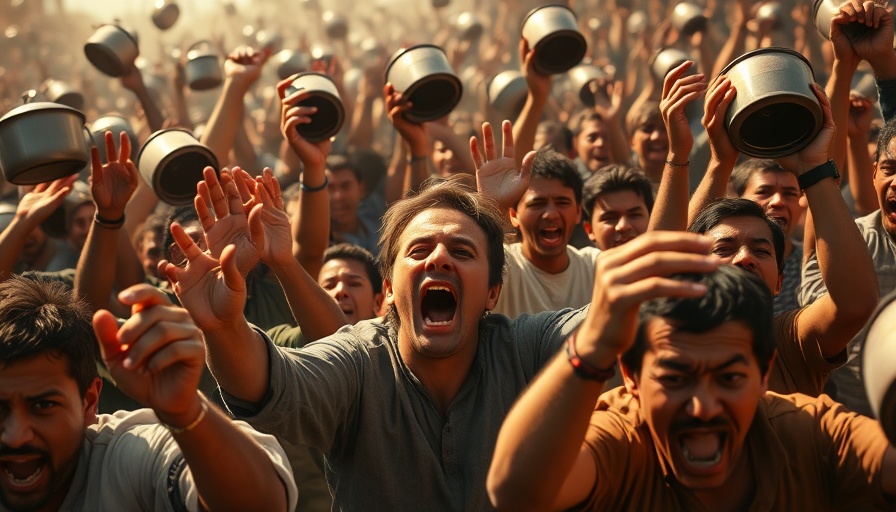
Tragic Escalation: Israeli Airstrikes Intensify in Gaza
In a devastating round of airstrikes over the weekend, Israeli forces killed at least 23 Palestinians, including three children in Gaza. These airstrikes come amidst a growing international outcry concerning the blockade on humanitarian aid entering the region, now in its third month. The ongoing violence has raised alarms among various global organizations, as well as heightened tensions that threaten to spiral further.
Understanding the Situation: Humanitarian Concerns
The airstrikes have exacerbated an already dire humanitarian crisis affecting over 2 million residents in Gaza. Hospitals are overwhelmed, and access to urgent medical care has been severely restricted, particularly for vulnerable populations, including children and the elderly. The United Nations and various humanitarian organizations have rejected Israel's recent attempts to control aid distribution, a strategy perceived by many as an attempt to impose external governance over local needs without adequate support.
The Family Tragedy: A Personal Account
Among the victims of recent airstrikes was a family of five whose tent was struck while they were sleeping in Gaza City’s Sabra district. This tragedy underscores the indiscriminate nature of warfare and the innocent lives caught in the crossfire. Stories like this one serve as poignant reminders of the human cost of these conflicts and the urgent need for peace and resolution.
The Impact of Blockade: Aid on Standstill
Israel’s blockade significantly restricts not only movement within Gaza but also the flow of necessary supplies, food, and medical aid. The blockade's implications resonate beyond immediate physical needs, affecting local economies and creating a sense of hopelessness and despair among residents. Particularly troubling is the recent proposal from a group of American contractors, self-named the Gaza Humanitarian Foundation, aimed at providing regional aid. This proposal came under heavy scrutiny for perceived attempts to control local responses rather than genuinely improve conditions.
Global Reactions: A Unified Outcry
Globally, the reaction to these strikes and the blockade has been one of outrage and concern. Human rights groups have condemned the violence, calling for greater accountability and international intervention to prevent further escalation. Many citizens around the world are advocating for a united effort to address the crisis and reestablish humanitarian aid flows to all affected areas of Gaza.
Future Outlook: A Path Forward?
Looking ahead, the situation remains precarious. Analysts suggest that without a strategic international mediation effort, the cycle of violence and retaliation may only worsen. Peace talks are essential to de-escalate and lay down a foundation for sustainable humanitarian assistance and long-term stability in the region.
What You Can Do: Raise Awareness
As global citizens, it is essential to stay informed and raise our voices against injustices occurring across the globe. Engaging with organizations that advocate for peace, humanitarian assistance, and protection of human rights can amplify the message that the world is watching and cares.
 Add Row
Add Row  Add
Add 




 Add Row
Add Row  Add
Add 

Write A Comment